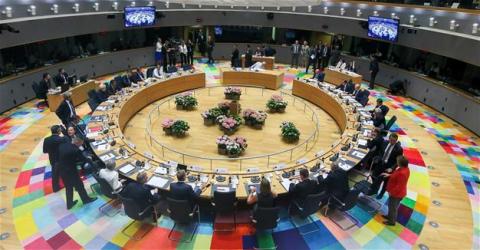Brexit's true meaning still elusive a year on

A year to the day after Britain voted to quit the European Union, the divorce proceedings are only just starting and European leaders are hoping that the decree absolute never comes through.
On June 23 last year, Britons voted by the narrow majority of 52-48 to end the unhappy cross-Channel marriage of four decades.
The referendum result toppled the government of David Cameron but now his successor, Theresa May, is also wobbling after a disastrous showing in an election two weeks ago.
May had called the election in the expectation of improving her party's grip on parliament and so strengthening her hand in the Brexit negotiations with the European Union. But voters had other ideas, wiping out her Conservatives' majority and plunging the Brexit process into new doubt.
In truth, doubts were apparent as soon as the referendum result came through. Britons had voted to leave the EU, but in what way exactly?
Pollsters said the decision was motivated to a large degree by frustration at uncontrolled immigration from the rest of the EU among austerity-weary Britons and by a desire for greater national sovereignty.
May took that to mean a "hard Brexit" -- stopping free movement of people from the EU, at the cost of depriving Britain of membership of the bloc's common trading market.
In March she filed the annulment papers by invoking Article 50 of the EU treaty, which sets a two-year deadline for the break-up to take effect.
But the formal negotiations only began on June 19, so the timeframe is tight to clinch agreement on the dizzying range of issues confronting both sides.
The resurgent Labour opposition and May's own finance minister, Philip Hammond, insist that Britons did not vote to become...
- Log in to post comments
